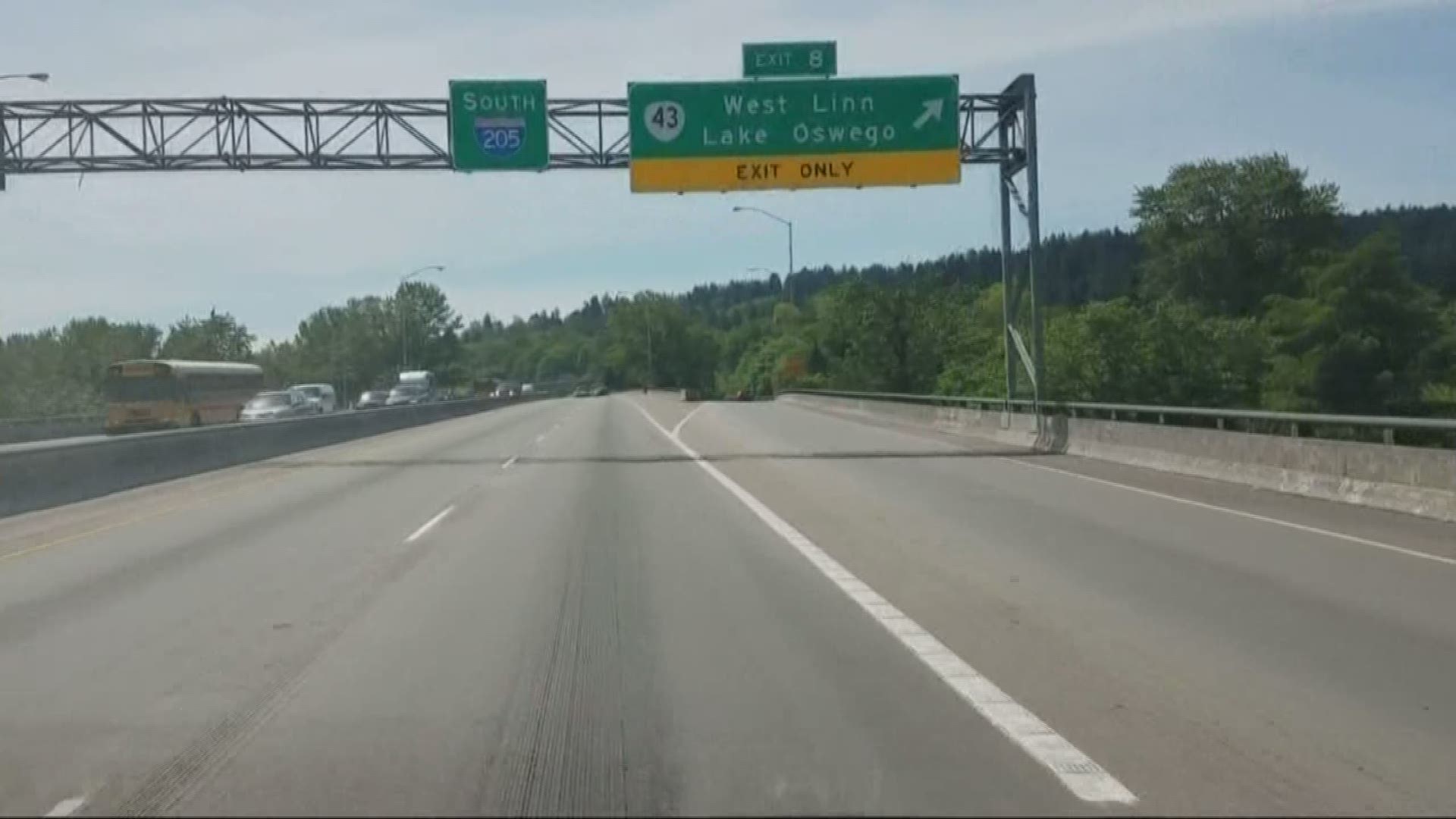SALEM, Ore. -- A new transportation plan unveiled Monday by legislators calls for a tax on new car and bicycle purchases, an employee payroll tax, and increases in the gas tax, title and registration fees.
For the last year, lawmakers on the Joint Committee on Transportation Preservation and Modernization worked on the plan that would pour roughly $5 billion into improving Oregon roads and bridges over the next 10 years.
“It's sobering for everybody to see what it will take in order to get Oregon's transportation system back on track,” said State Sen. Lee Beyer, D-Springfield.
The proposal includes multi-million dollar improvements to the Portland metro area’s most congested spots.
Listed as a high priority in the Portland area:
- Add a lane each direction on Interstate 5 between Interstate 84 and Interstate 405, and improve the ramp from I-84 to I-5.
- Add a southbound and a northbound lane to Oregon 217.
- Widen the Abernathy Bridge on Interstate 205
- Widen I-205 from West Linn to Stafford Road
Some $33 million would be dedicated to starting what's called congestion pricing. It's basically a rush hour toll. The same system could be used to offset costs of freeway improvements in that area.
The rush hour toll would be put in place somewhere on I-5 between the Willamette and Columbia rivers and somewhere on I-205 from the I-5 junction to the Columbia River.
The construction toll would apply to the I-5 Rose Quarter widening and the I-205 Abernathy Bridge widening.
The plan also calls for the transfer of Cornelius Pass Road from the counties to the Oregon Dept. of Transportation and Powell Boulevard from ODOT to the city of Portland.
The plan aims to connect communities when it comes to bike and public transportation.
“What we're hoping is that we can increase the reach of the transit system so that more people who choose to can ride the bus and get out of the way of the trucks,” said Beyer.
To help pay for improvements, law makers have proposed Oregonians pay a 1 percent tax on all new cars and a 5 percent tax on all new bicycles, excluding children's bicycles.
“Everywhere we went, people said bicyclists need to pay a share,” said Beyer. “They need to be in the game.”
The bottom line, lawmakers said, is they can't tax or build their way out of congestion, and with over a hundred people moving to Portland every day, they have to do something.
“That's a whole lot of people on the road,” said Beyer. “Frankly, we're just not keeping up with the cost of the roads.”
But many Portland cyclists say this is not the right answer.
“I think it's bad policy. It's bad politics, that what is comes down to,” said Jonathan Maus, BikePortland editor and publisher. "It’s clearly a political move so they can get some people to vote for the transportation package.”
“We have lawmakers with constituents who constantly say this mantra of ‘bicyclists don’t pay their way,’ and that sort of thing. It’s not true. It’s not good policy," Maus said. We as a society don’t tax things that are not luxuries. We don’t tax things that have no negative impact on society. Bicycles are a great thing for the state. there’s no negative impact.
“I think it’s really unfortunate that someone will have to walk into a bike shop, if this bill passes like this, and spend an extra 20-30 dollars on an entry-level bicycle, just for doing something that is such a great benefit for the state.”
Lawmakers plan to go over the proposal again on Wednesday. Once a bill is drafted, they plan to hold public meetings so tax payers can weigh in. The hope is for a full vote in June.
Other new fees:
- The current 30 cent per gallon state fuel tax would increase by 6 cents next year, and another 2 cents every other year through 2026.
- Both title and registration fees would increase by $20 in 2018, and another $5 every other year through 2026.
- A statewide employee payroll tax of 0.1 percent would take effect next year. It would cost a minimum wage worker about $20 per year, or a worker with an annual salary of about $50,000 about $50 per year
The registration and title fee could possibly be tied to how many miles you drive, the fewer the miles, the less you pay.
The Statesman-Journal contributed to this report

